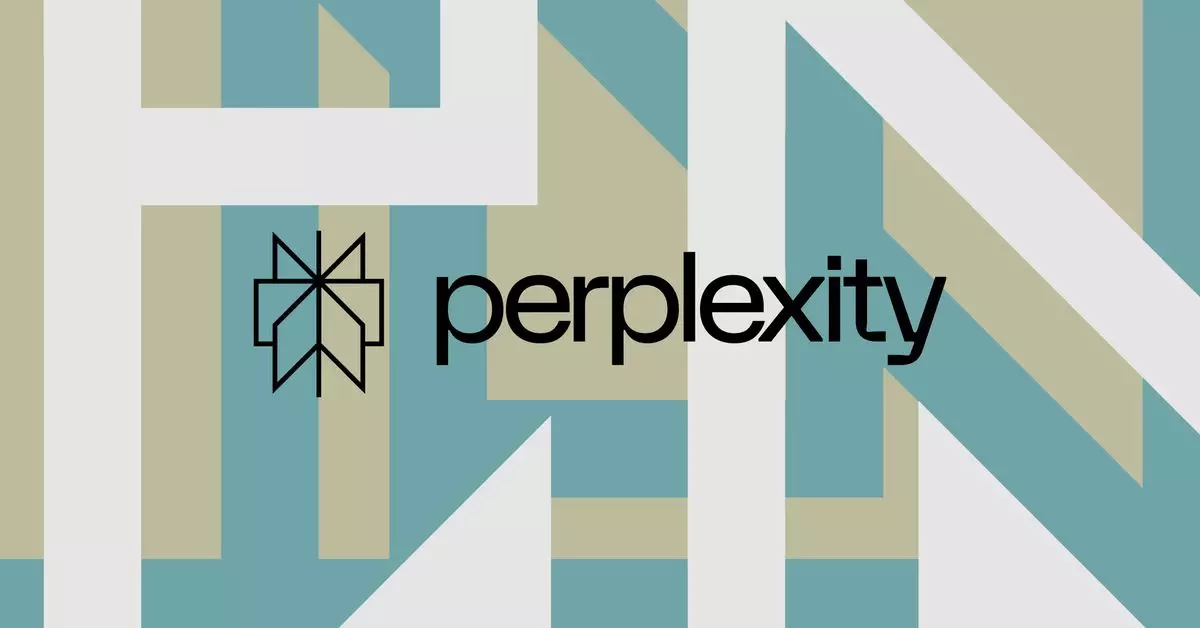Artificial Intelligence (AI) has revolutionized various sectors, and its rapid evolution continues to evoke intense debates about ethics and legality. The recent confrontation between AI startup Perplexity and media conglomerate News Corp epitomizes this conflict, drawing the lines between innovation and intellectual property rights more clearly than ever. In this article, we will explore the intricacies of this legal battle and examine the implications for both the tech industry and journalism.
The center of contention is Perplexity’s AI search engine, which stands accused of utilizing content from various news organizations without proper authorization. News Corp, which operates prestigious outlets like The Wall Street Journal and the New York Post, has made severe allegations against Perplexity. They claim that the AI startup engages in a practice they term as “copying on a massive scale.” Perplexity’s AI has been scrutinized for potentially taking snippets from copyrighted material, raising significant questions about its operational ethics.
In response to these allegations, Perplexity released a blog post defending its practices. The company argues that the lawsuits from organizations like News Corp indicate a troubling mindset in which media entities prefer to possess absolute ownership over publicly reported facts. Perplexity asserts that no corporation can rightfully claim ownership over facts themselves; instead, it is the expression of those facts that can be protected under copyright law. This distinction is crucial, as it raises questions about what constitutes a copyright infringement in the age of AI.
Copyright law traditionally protects creative expressions but not the underlying facts themselves. This raises difficult questions regarding the boundaries of fair use, especially for AI platforms that aggregate and analyze vast amounts of data. Perplexity posits that they are not infringing upon copyrights by using facts but may be crossing a line when it comes to the expression of these facts — a claim supported by previous critiques from publications like Forbes, which accused Perplexity of closely mimicking their articles.
However, this legal gray area complicates matters. While it appears that AI innovation is progressing rapidly, the frameworks that govern intellectual property need substantial re-evaluation to keep up. Media companies fear losing revenue and control, while tech companies argue for the right to access and utilize information that is already publicly available. This standoff raises the broader issue of how our legal systems can adapt to technological advancements.
Perplexity advocates for an amicable relationship between technology and journalism, emphasizing the potential for partnerships to benefit both sides. They cite their new revenue-sharing program with respected publications as evidence of this commitment to collaborative growth. By establishing mutually beneficial agreements, Perplexity seeks to foster an environment where tech companies can innovate without infringing upon the rights of content creators.
Conversely, News Corp’s CEO, Robert Thomson, refers to Perplexity’s practices as a blatant abuse of intellectual property. He underscores the potential damage inflicted upon journalists and publishers when their work is reportedly copied and presented as original. Thomson emphasizes the need for accountability and urges for a re-examination of the current operational practices in the tech realm. Rather than embracing technology that could augment their content, companies like News Corp view it as a threat, invoking fears of a so-called “content kleptocracy.”
As the debate between AI companies and traditional media organizations continues to evolve, it becomes increasingly necessary to find a balance that respects both innovation and intellectual property rights. The discord highlighted by Perplexity and News Corp serves as a microcosm of what lies ahead as AI becomes more ingrained in our everyday lives. If parties can find common ground, there could be a future where AI augments journalism rather than undermines it.
The ongoing dialogue about the ethical implications of AI technologies and ownership will shape the landscape of both fields in the years to come. As we navigate these intricate legal frameworks, it remains vital for both parties to prioritize integrity and creativity, recognizing that the shared goal is not a battleground but a collaborative future. Ultimately, the trajectory of AI development will depend on secure partnerships rather than adversarial stances, paving the way for a more harmonious coexistence between tech innovation and media integrity.

